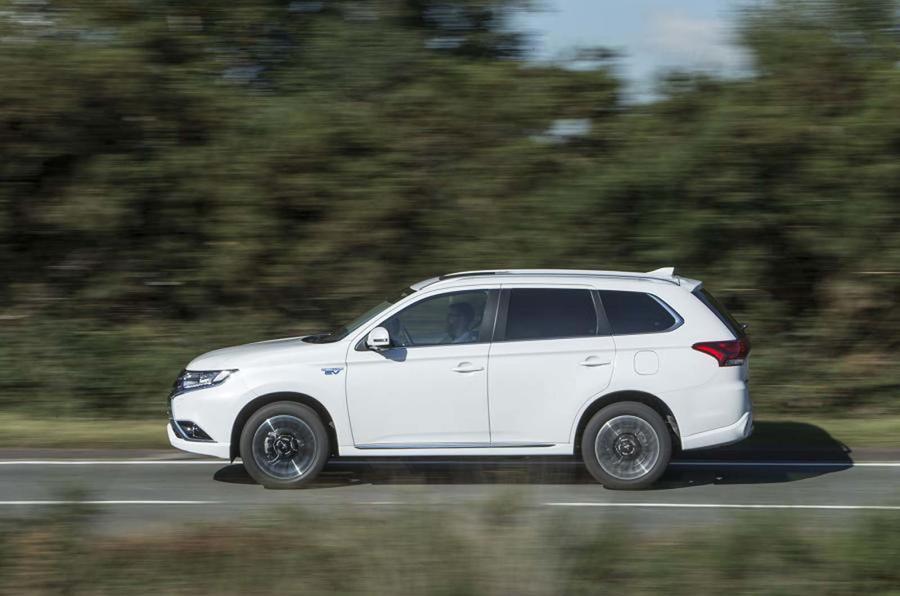Mitsubishi says its plug-in hybrid technology is essential to meet increasingly tough CO2 emissions regulations - and the next-generation Outlander PHEV will have an electric-only range of around 60 miles.
The Outlander is currently the bestselling plug-in hybrid electric vehicle (PHEV) in the UK. While increasingly tough CO2 regulations are pushing several car firms towards pure-battery EV technology, Mitsubishi’s strategy boss, Vincent Cobee, says the limitations of full-electric tech mean PHEVs are key to meeting those requirements.
“Battery EVs have a limitation in terms of range at the moment, and in some countries, that might not be the answer,” said Cobee. He added that the firm would add full-electric models to its range, alongside extending its PHEV powertrain to other models.
“The Outlander PHEV currently has an electric-only range of 31 miles, and we’ll extend that with the next-generation model: the aim is 80-100km [50-62 miles], which will be enough for most people to do the bulk of their journeys purely on electric power and live a largely EV lifestyle, but still be able to do longer trips when needed.”
Cobee reiterated that the firm will not develop a bespoke range of EV-specific models in the future, instead offering battery EV, hybrid and PHEV versions of its models.
He also ruled out a plug-in hybrid version of the current-generation L200 pick-up, which has just been launched, because the technology is not yet cost-effective or beneficial to commercial vehicles – but he said that was likely to change as the technology developed in the coming years.
Read more
Mitsubishi Outlander PHEV review
Top 10 best hybrid SUVs on sale in Britain 2018
Mercedes pulls PHEVs from production to make way for third-gen tech










Join the debate
Add your comment
Glad to see Mitsubishi have
Outlander battery
I'm lucky if I get 20 miles from my 2018 Outlander battery, feel terribly let down after the hype of 33miles.
Mitsubishi is wrong
On the same day as this article, news that in the UK people with PHEV often don't even unpack their charging cables, so the car acts as an old fashioned petrol car. This is one reason the government is dropping the tax benefit. Mitsubishi will not be selling any cars in UK in another year or two, all electric is what we need now. Hyundai/Kia will coast past in new car sales, they are cost competitive with the Outlander and much cheaper to run.
larch corner eco wrote:
I think we all assumed that in general people rarely plugged them in. But to suggest they are then just an old fashioned petrol car is not really true. When the initial charge runs out they then act as a petrol hybrid, and hybrids are quite a bit more efficient than a straight petrol car.
artill wrote:
That old cheshnut. Fact is it depends on how the employer reimbursed the employee. When we first started allowing them we still used a fuel card. As this did not reimburse the driver any money for their home electricity usage, no one plugged it, why would you subsidise your work?When we switched to fixed per mile (AFR) reimbursement then it soon weeded out those that did want to plug in, they couldn't afford not too! as electric miles are cheaper than petrol miles and you get the same rate for either, you would be a dumb twat not to plug in.
The BBC report did also feature a user who plugged in and did most his journeys on electric and got huge MPG figures.And your right on your second point to, I do high mileage in mine and my lifetime average is 43mpg. If anyone can find me a 200bhp 4.7 metre long autobox 4 wheel drive SUV that does much better in real life (not silly published figures), and then lets see it!